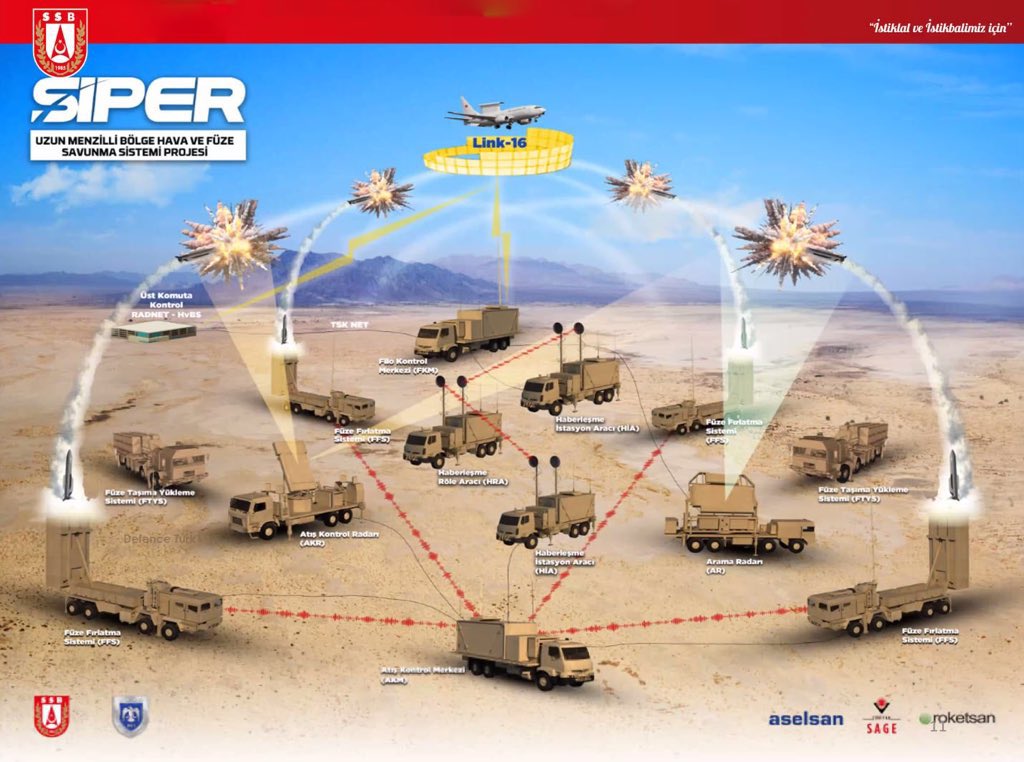In the midst of frayed ties with NATO and the US, Turkey which is looking to pursue an independent policy under President Recep Tayyip Erdogan is exploring domestically developed fifth-generation fighter jets. As part of the move, Ankara is looking at cooperation with allies Azerbaijan and Pakistan.
MUST READ: Rafale Fighter Jets: Turkey To Train Its Pilots On French-Origin Warplane Operated By Qatar Air Force
“Our doors are open for cooperation in this direction. In particular, we are talking about cooperation with countries such as Azerbaijan and Pakistan, and we propose to unite efforts in this direction”, the head of the Turkish Defence Industry Committee Ismail Demir said in an interview with CNN Turk.
Following its ouster from the US’ F-35 Joint Strike Programme over its acquisition of the Russian S-400 air defense system, Turkey has been pushing its ambitious indigenous fifth-generation fighter jet, known as the TF-X National Combat Fighter.
The TF-X has been planned to be a single-seat, twin-engine all-weather multi-role fighter developed by the Turkish Aerospace Industries (TAI) along with BAE Systems which is providing some technical assistance for the development of the fighter jet.
TAI and BAE Systems signed a £100 million strategic agreement in January 2017 for collaborating on the stealth fighter project. As part of this contract, BAE Systems will provide engineering consultancy services and project-related support.
The Undersecretariat for Defence Industries (SSM) of the Ministry of Turkish National Defence and TAI inked a deal in August 2016 for the design and development of a home-grown fighter jet.

In May 2020, Turkish company HAVELSAN and TAI decided to collaborate for the software development and integrated training for the TF-X National Combat Aircraft initiative. The stealthy fuselage of this fifth-generation fighter jet is going to be composed of superior carbon composites.
The aircraft’s aerodynamic design is going to further enhance its high-speed capabilities.
The aircraft is largely intended for meeting the needs of air-to-air combat. However, owing to its sleek design and distinctive features, the TF-X can also perform air-to-surface missions.
The aircraft is expected to provide a high level of situational awareness, sensor fusion techniques, low observability, and advanced weapon systems.
“We are and will continue to take certain steps in this direction, because the resources of one country may not be enough to implement a project of this scale. Of course, each country has its own skills and abilities. It is very important to combine these abilities.
We received positive signals in this regard, we said that we are completely open to partnership. We will continue to develop steps in this direction with countries from which we received positive signals, and we believe that we must continue efforts in this direction,” Demir said.

Eyeing Partnership With Pakistan
Turkey has been pushing to get Pakistan on board for jointly developing missiles and warplanes, with the hope that a partnership with Pakistan will provide Ankara access to Chinese military technology.
Turkish defense and government officials conducted several talks with their Pakistani counterparts, with the last “high-level” discussion happening in January this year, for co-manufacturing of military hardware with Pakistan, Bloomberg reported.

Turkey views Pakistan as a key ally and potential partner for both the Siper missile as well as the TF-X fighter jet, according to officials familiar with the issue.
However, they did not reveal if these talks have received Beijing’s consent for sharing China’s technology with Turkey. Turkish President Recep Tayyip Erdogan has referred to Turkey’s collaboration with Pakistan for future defense projects as having “very serious potential”.
The ‘Three Brothers’ Pact
In recent times, Turkey, Pakistan, and Azerbaijan have strengthened their military cooperation by conducting joint military drills on September 12 in Baku, the capital city of Azerbaijan.
The exercise was known as the “Three Brothers- 2021,” and was conducted with the aim of “further strengthening the existing ties between the three armies and helping them find new ways to fight terrorism in the region”, according to an official statement.

Lt. Gen. Hikmat Mirzayev, Azerbaijan’s special forces commander, said during the inauguration ceremony that “cooperation between the three countries was at the highest level and important measures were being taken to further strengthen relations to ensure the security of the region and its people”.
Pakistan and Turkey provided military support to Azerbaijan during the 44+ days long Second Karabakh War in September 2020, when Azerbaijan fought against Armenian armed forces.
“The regional trio is important in the sense that they will add a military component to the political ties,” Soner Cagaptay, director of the Turkish Program at the Washington Institute, told Arab News.
“It is interesting to gather Pakistan as a nuclear power, Turkey as one of the largest and most powerful militaries within NATO, and Azerbaijan as a rising regional military power largely thanks to Turkish and Israeli contributions to the defense industry”, he added.
- Written by Kashish Tandon/EurAsian Times Desk
- Contact the author at: kashishtandon21@gmail.com
- Follow EurAsian Times on Google News




